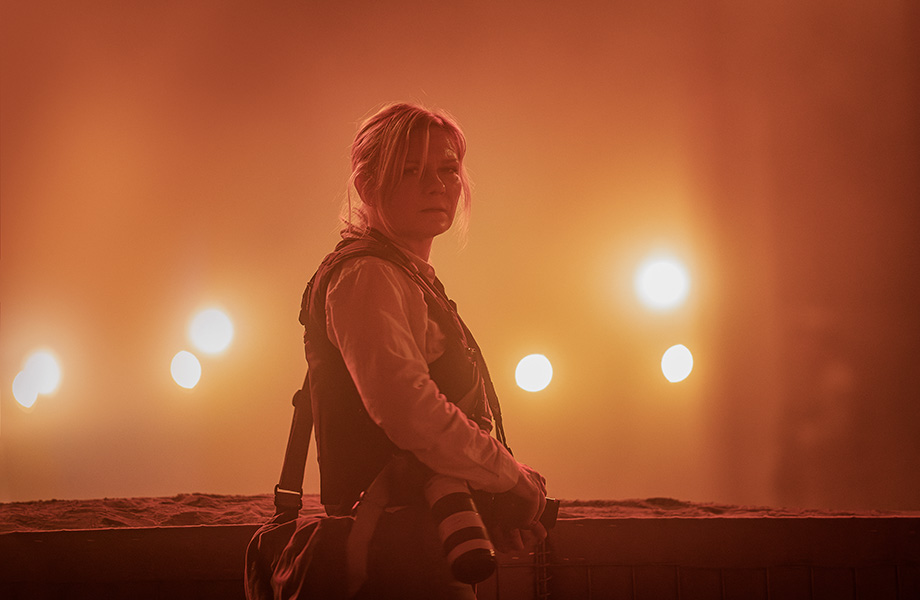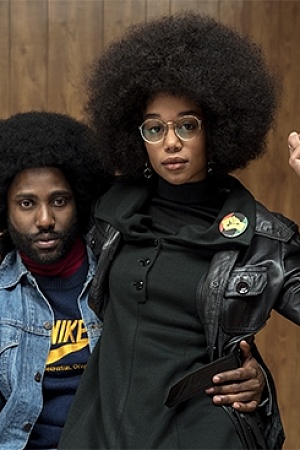Civil War

‘It is always the image that someone chose; to photograph is to frame, and to frame is to exclude.’
Susan Sontag, Regarding the Pain of Others
Shoot first, ask questions later. It’s a phrase that applies equally to the combat soldiers and the photojournalists at the heart of Civil War. From the opening scene to the provocative closing credits, Alex Garland’s new film follows a team of old-school correspondents who document a near-future dystopian United States at war with itself. They constantly insert themselves into the middle of skirmishes for the shot. A dogmatic devotion to capturing the moment is what drives both the plot and its characters. They are individuals with no backstory, married to the profession even as it destroys them psychologically. Through their unwavering lenses the audience observes this civil war, as well as the interpersonal dramas that unfold within it. But are those lenses really as ‘objective’, or even as ‘anti-war’, as director Alex Garland intended them to be?
Continue reading for only $10 per month. Subscribe and gain full access to Australian Book Review. Already a subscriber? Sign in. If you need assistance, feel free to contact us.











Comment (1)
What I took from it is that it is definitely a commentary on the dangers of Trump. Opening with a president trying to settle himself for a speech, and closing with the death of that president in a mundane kind of trophy scene, I see it as a 'Wizard of Oz' moment - the 'trophy' at the end is the little man behind the curtain who has loomed so large.
Leave a comment
If you are an ABR subscriber, you will need to sign in to post a comment.
If you have forgotten your sign in details, or if you receive an error message when trying to submit your comment, please email your comment (and the name of the article to which it relates) to ABR Comments. We will review your comment and, subject to approval, we will post it under your name.
Please note that all comments must be approved by ABR and comply with our Terms & Conditions.